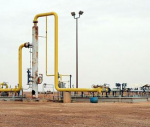You are here
Restless America
Oct 16,2023 - Last updated at Oct 16,2023
STANFORD — Despite a resilient economy that has defied most forecasts, thus far both avoiding a recession and maintaining low unemployment, Americans seem increasingly restless. A large majority, lacking confidence that today’s good conditions will last, believe the country is heading in the wrong direction. Moreover, America is facing perhaps the most complex and dangerous geopolitical situation since the fall of the Berlin Wall.
Yet with so much at stake, the country is heading toward a presidential election between a candidate who has been indicted for multiple serious crimes and an incumbent who is labouring under a stain of corruption surrounding his son’s foreign business dealings. To be sure, scandal often comes with the territory in American politics. President Richard Nixon left office to avoid being impeached and removed from office over Watergate, and Bill Clinton and Donald Trump were both impeached (but not convicted by the Senate). Nonetheless, today’s political rancor seems new in its level of intensity, and it is only growing.
Making matters worse, vital national issues remain unaddressed, and America’s future economic strength and geopolitical influence are facing major new risks. The country has excessive public debt and the budget outlook shows huge deficits as far as the eye can see. Social Security and Medicare are both heading toward insolvency. And the United States urgently needs to strengthen its military and its alliances to counter the growing of current and potential adversaries.
Moreover, the US needs reforms to mitigate climate risks that are not only sensible but that can also withstand a shift in power between parties. Policymakers need to reassert control over the southern border and enact merit-based immigration reform. And they need to maintain a dynamic market economy by reducing dependence on “temporary” fiscal and monetary interventions. Without strong leadership and common-sense policymaking from the next president, the US will continue to drift into fiscal, economic and possibly military crises with global ramifications.
On the anniversary of the passage of the Inflation Reduction Act, US President Joe Biden has been extolling the supposed benefits of his policies (even as he admits that the IRA was misnamed). Yet a majority of independent voters, who now account for a record 49 per cent of the electorate, believe his policies have made them worse off.
They have good reasons for thinking so. With its excessive deficit-financed government spending in an economy already nearing full employment, Bidenomics was the biggest contributor to what has become the worst inflation since the early 1980s. While price growth has moderated somewhat, core inflation (excluding food and energy prices) remains well above the US Federal Reserve’s 2 per cent target. Moreover, voters know that Biden wanted trillions more in spending than he got, and that he will push for more spending should he get a second term.
Nor is America’s unease only about the damage done to family budgets by high inflation. During Biden’s first 20 months, illegal immigrant encounters have soared to well over five million, many receiving nothing more than a slip of paper ordering them to appear at an asylum hearing in the distant future. Major “progressive” cities have been so ravaged by crime that people and businesses are fleeing. The immense harm done bypandemic school closures is still taking a heavy toll, yielding especially disastrous results for already disadvantaged students.
But, to the chagrin of most voters, the 2024 presidential election is likely to be a rematch between Biden and his predecessor, Donald Trump, two candidates with low general approval ratings and high negative sentiment readings. Not only does Biden’s age call into question his capacity to do the job for another four years; voters are also turned off by the scandal surrounding Hunter Biden’s foreign business dealings and tax evasion, including an attempted sweetheart immunity deal.
There is also mounting evidence that Biden, as vice president to Barack Obama, aided or turned a blind eye to his son’s influence peddling, efforts that resulted in nine family members allegedly receiving payments from foreign nationals. In a recent CNN poll, half of the respondents said they believe that Biden’s behaviour as vice president was illegal (42 per cent) or unethical (18 per cent) and also that he has acted inappropriately in the investigation of his son.
Trump’s problems are far worse, both legally and politically. In a recent Fox poll, a majority of respondents bellieve he committed illegal acts (though a majority of Republicans also regard his treatment by the Justice Department as motivated by partisan politics). Facing four separate indictments, totalling 91 charges, the former president will endure legal proceedings throughout the Republican primaries and the election next November.
Many of the charges against Trump, both federal and in the state of Georgia, are based on tenuous or previously rejected legal theories, and some may be overturned on appeal. Other charges, however, such as the one for obstruction of justice over the classified documents at his Mar-a-Lago estate, appear to be on firm ground. Meanwhile, Trump and his supporters continue to claim, falsely, that the 2020 election was stolen.
Despite this baggage, Trump is heavily favoured to win the Republican nomination, and he is tied with Biden in a hypothetical general election matchup. We are thus left with a multitude of plausible scenarios. For starters, Trump could win the Republican nomination, lose the general election, and then blame his loss on his “phony” legal issues. If any of his convictions are subsequently reversed on appeal, his claims could resonate with many voters.
Another possibility is that Trump could retake the White House and pardon himself, or evidence could emerge tying foreign payments more directly to Biden. Under any of these scenarios, Biden or Trump would find themselves attempting to govern an even more intensely divided country than what we see today.
America needs a leader in the mold of Harry Truman, Ronald Reagan, or George H.W. Bush. They tackled big issues, like building the post-World War II international order; breaking inflation, rebuilding the military, and adroitly managing the Cold War’s end — including reunifying Germany inside NATO, while winning the first Iraq War (the only hot war America has won since WWII). If Americans are restless, one reason may be they are questioning whether such a leader will emerge.
Michael J. Boskin, professor of Economics at Stanford University and senior fellow at the Hoover Institution, was chairman of George H.W. Bush’s Council of Economic Advisers from 1989 to 1993. Copyright: Project Syndicate, 2023. www.project-syndicate.org













